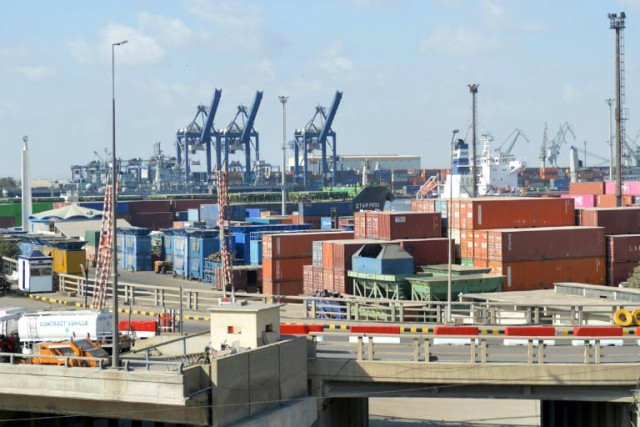Govt moves to cut port delays, speed up clearance
Committee proposes 24/7 customs operations, digital tools, and stricter timelines

A high-level committee has finalised recommendations to cut container dwell time at Karachi Port and Port Qasim, aiming to improve cargo clearance and reduce congestion at Pakistan's two key seaports.
According to an official statement, the proposals were presented on Tuesday to Federal Minister for Maritime Affairs Muhammad Junaid Anwar Chaudhry, who directed that the plan be sent to the Federal Board of Revenue (FBR) the same day. He asked FBR to prepare an implementation strategy within two weeks.
The meeting was joined by Acting Karachi Port Trust (KPT) Chairman Rear Admiral Ateequr Rehman and Port Qasim Authority's (PQA) Director Operations Rear Admiral Muhammad Khalid via video link from Karachi. The committee, chaired by Umer Zafar Sheikh, Additional Secretary at the Ministry of Maritime Affairs, included representatives from KPT, PQA, Pakistan Customs, FBR, and terminal operators.
The minister said the reforms will align Pakistan's ports with global benchmarks by ensuring faster clearances, smoother trade flows, and lower business costs. He also restructured the committee, giving it the mandate to act as an implementation body, coordinate with FBR, and monitor progress.
The plan addresses delays in goods declaration filing, adjudication, lab testing, transportation, and gate-out processes. Key steps include promoting pre-arrival filing, imposing fines for late submissions, and holding virtual hearings to speed up adjudication. Expanded lab facilities and rapid screening technologies have been recommended to reduce testing delays.
To ease congestion, the committee proposed quicker auctioning of overstayed cargo, expansion of grounding space, and more labour and customs examiners. It suggested round-the-clock customs assessments, examinations, lab work, and shipping services.
Transport improvements include extending bonded transit, simplifying tracker installation, adding escort staff, and lifting night restrictions on heavy vehicles. Infrastructure plans call for truck holding areas, rail freight corridors, and multi-modal transport to reduce road reliance.
The digitalisation push includes AI-based risk profiling of importers, an integrated stakeholder portal within WeBOC, e-auction facilities, and real-time links between terminals, traders, and transporters. The free period for containers under the green and yellow channels will also be reduced from five days to three, with penalties for non-compliance.






















COMMENTS
Comments are moderated and generally will be posted if they are on-topic and not abusive.
For more information, please see our Comments FAQ